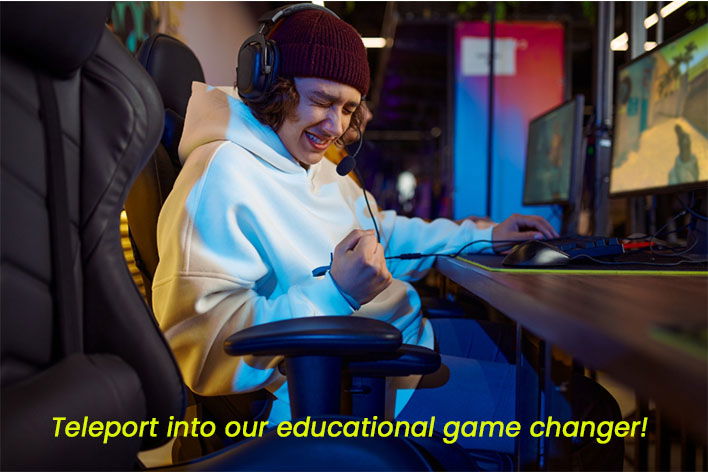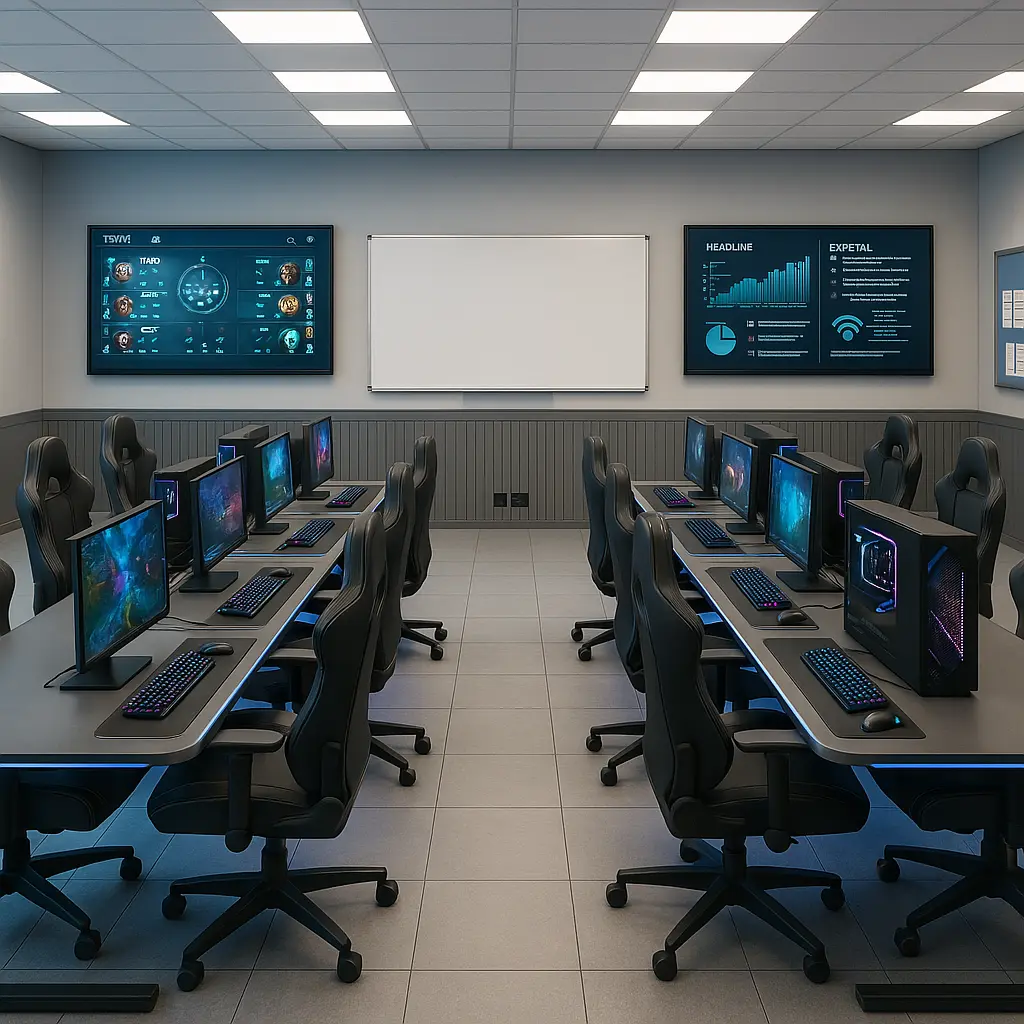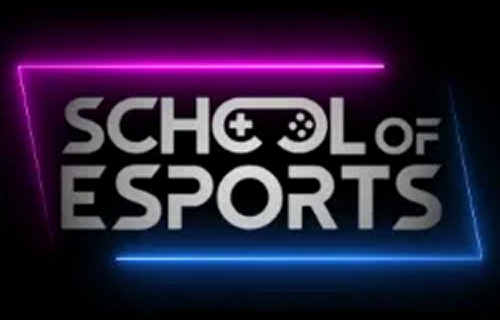Key skills developed during our course:

Why School of Esports?

Course Overview…

Our Courses
All products
- Courses
- Community
- Events
- Group chat
- Digital Products
- Physical Products
- Live Products
- Coin Packages
- Coaching Programs
- All
The important bit – learn…
Improve your employability skills
Enhance your ability to be reflective
What it takes to be a healthy game player
Gain valuable team working and communication skills
Develop planning, organisation and problem solving skills
Learn strategy techniques and feedback skills to enhance your game play
Understand the huge amount of potential careers within the Esports industry
No events found.
Our Case Studies
The Education behind our STEM led course –what will I learn?
Our Latest Posts
FAQ
What is esports?
Esports (or electronic sports) is a term used to describe competitive video gaming.
It’s different from standard video gaming in that esports is competitive (human-vs-human) and usually has an engaging spectator element to it, like traditional sports.
Esports tournaments usually consist of amateur or professional gamers competing against one another for a cash prize.
Think of esports as competitive video gaming where skill and professionalism are celebrated.The pro gamers who play at this level know the games inside out, much like a professional footballer or athlete would in their respective fields.
There are many different games played competitively, with the likes of League of Legends, Dota 2 (multiplayer online battle arena games) and Counter-Strike and Fortnite (shooters) among the most popular. Rules and strategies can differ greatly depending on the game in question. To give you an example of the different team sizes, League of Legends is 5v5, first-person shooter Overwatch is 6v6 and Rocket League (arena football with rocket- powered cars) is 4v4.
Some games are played on consoles like Xbox One or PS4, while others are played using PCs. Matches can take place online over the internet, or at a physical event via a LAN (Local Area Network) connection. Matches can be viewed by spectators in person at a venue (usually for the grand finals) or over the internet via streaming platforms such as Twitch, which broadcast the games live online.
Players will usually play for a set team/organisation, which, like traditional sports, will have their own fans and followers. For example in the UK some of our most well-known esports teams include Fnatic, Excel Esports and London Spitfire.
To give you a sense of the scale of esports, some of the biggest tournaments offer millions of pounds in prizes (like the Dota 2 International and Fortnite World Cup which have some $30m up for grabs), and are watched by millions of fans. These are the exception, however. Other tournaments may have a $1m prize pool or less; amateur tournaments can often have prizes and viewers in the low thousands or hundreds, rather than millions.
What are the career opportunities?
Esports has created many new jobs around the world – and the number is continuing to grow.
For example, in 2019 the number of esports jobs in the UK posted on jobs board website Hitmarker has risen by 163% year-on-year.
When some people think of esports, they think of pro gamers – the players that compete at the top level, earning thousands, or even millions of pounds. However, esports offers so much more than this.
Like traditional sports, there are commentators, event managers, journalists, content creators, photographers, coaches, sales and marketing executives and many others.
Having an interest or skills in esports can also pave the way to other careers. For example, the wider video game industry is expected to grow to some £180 billion by the end of 2022, with the global games audience estimated at between 2.2 and 2.6 billion people. This offers many more career options, like games development, publishing, streaming and more.
How will my child learn?
Lessons are delivered online via our dedicated learning management system. Lessons are typically for 1 hour per week and are delivered by fun, friendly expert tutors who are all passionate about what they teach.
Education is not all about books, tests, and school. Children as young as 10 are putting key life skills into practice while gaming. Numeracy, literacy, navigation, how to strategize, supporting peers enhancing their organisational skills.
The only thing is… they do not realise it and need guidance to channel these skills to reach their full potential.
Please see the ‘what will I learn?’ section of our website for more details.
What equipment will we need?
Ideally either a PlayStation, Xbox or gaming pc as well as a windows or Mac laptop or pc with a good internet connection to be able to access the course.
How many students are in a group?
Our class sizes are no more than 10 students to one tutor.
Doesmy child have to do an exam?
There are no formal written exams. Your child will keep an e-portfolio to showcase their work with the full support of their tutor.
Are the games safe for my child?
Each game has its own age rating. Pan European Game Information (PEGI) is the single video games age rating system that is in force across Europe. Any games that are used within any School of Esports sessions will be age appropriate.
How do I know my child will be safe online during their online classes?
Our online platform is a totally safe and secure environment for your child to work within and all of our tutors have an enhanced DBS check.
Do you offer a free trial?
No- This is a fully accredited course that lasts for 36weeks and we ask for your commitment in order that the qualifications are gained. We ask for termly payments, however in the unlikely event that your child does not wish to continue, you are free to cancel before your next termly payment is due.
Are my payments secure?
Yes, all payments are managed by the class4kids booking system. All online payments are processed securely by our payment provider Stripe. Stripe is a world-recognised online payment system; it’s a highly secure and trusted financial platform.
Will my child receive a qualification?
For students whose passions go beyond the traditional curriculum subjects, the Esports Leadership Programme offers a way to develop essential leadership skills in a subject they are really excited about. The qualifications will offer them the opportunity to develop skills that are in high demand from employers, enhance their learning and support future aspirations. They will receive a Level 1/2 Leadership Skills in Esports qualification.
What are the benefits of learning with School of esports?
Like real-world sports, esports is very inclusive regardless of age, background or gender. Unlike real-world sports, it’s also excellent at engaging individuals who don’t have physical or social confidence.
A recent study by Digital Schoolhouse and Staffordshire University found that:
Esports creates positive behavioural changes in young players that will translate into behaviour modification in other aspects of their lives
Communication and team-working were most likely benefits, followed by building community and friendships
Participating in esports influenced players career choices. 90% said it had increased their interest in a career in the video games industry
Over 80% of young people said that the competition had increased their interest in participating in other team sports
Catch the credits...











